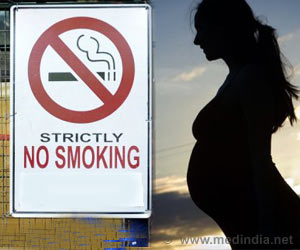
Though smoking in pregnancy rate has now fallen below 11% across England but wide variations remain. The most recent figures suggest that 2.1% of women in Westminster were still smoking by the time their baby was born compared with 27.2% in Blackpool.
The smoking in Pregnancy Challenge Group is made up of groups like Action on Smoking and Health, Bliss, the Faculty of Public Health, the Royal College of Midwives and the Royal College of Nursing, The Lullaby Trust, Tommy's and the Royal College of Obstetricians and Gynecologists (Rcog).
The group has also called for a more robust data collection system, mandatory training for health professionals and automatic referral for pregnant smokers to specialist services unless they opt out.
Dr David Richmond, president of the Rcog, said, "We support the national ambition to halve smoking in pregnancy rates by 2020. As obstetricians we see first-hand the devastating effects of miscarriage, premature births and stillbirths caused by smoking in pregnancy. Stopping smoking is the most important thing a pregnant woman can do to improve her baby's health, growth and development and reduce unnecessary pregnancy complications."
Francine Bates, chief executive of the Lullaby Trust, said, "Recent progress is great news but there is still much work to be done. Smoking in pregnancy remains the largest modifiable risk factor in sudden infant deaths, which devastates families. It is the most vulnerable who will be hit hardest if we do not do more to dramatically reduce the rates of smoking in pregnancy."
Advertisement
A Department of Health spokesman said, "Smoking rates in general and in pregnancy are at their lowest ever levels. We have made significant progress in combating smoking. We have introduced standardized packaging for cigarettes, banned smoking in cars with children and we are determined to continue to reduce smoking rates, particularly in pregnant women. We have committed to developing a new tobacco control strategy and will consider all recommendations as part of this process."
Advertisement















